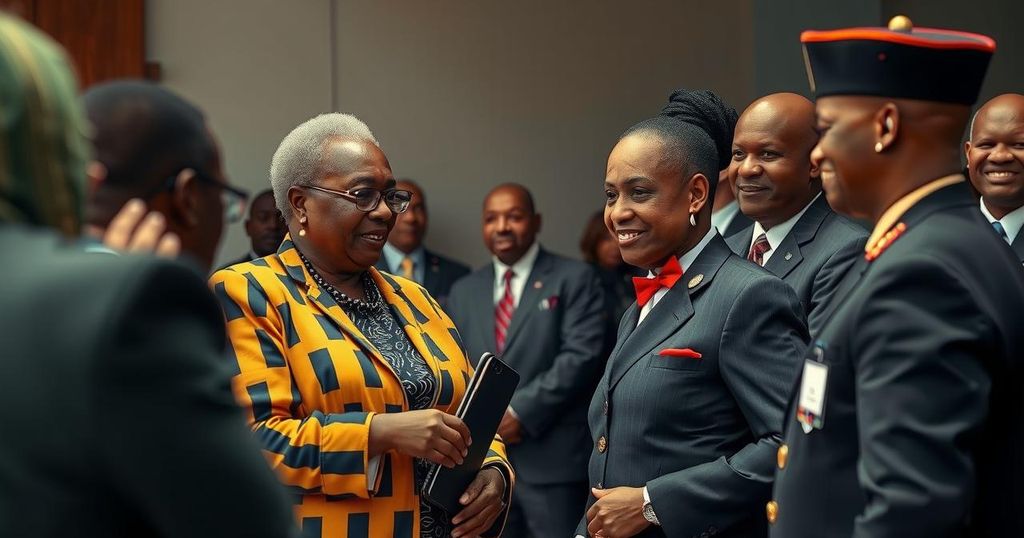Botswana’s New Leader Duma Boko Sworn in After Landmark Election Upset
Duma Boko has been inaugurated as Botswana’s new president after a historic election that resulted in the first loss for the Botswana Democratic Party in 60 years. Boko plans to increase the minimum wage and introduce universal healthcare, aiming to revitalize the economy and restore public confidence following discontent with the previous administration due to rising unemployment and corruption allegations.
On Friday, Botswana welcomed its new president following a groundbreaking electoral upset that ousted a party that had held power for nearly six decades. Duma Boko, a human rights attorney aged 54, assumed office under the watch of the chief justice just three days after the polls that resulted in the Botswana Democratic Party’s (BDP) loss. In his inaugural address broadcast live, Boko articulated key pledges including raising the minimum wage to 4,000 pula (approximately $300) and implementing universal health coverage. He emphasized the need to build investor confidence while looking to diversify the nation’s reliance on its diamond sector, crucial for economic stability. Boko accepted the presidency with a commitment to humility, stating an acute awareness of the responsibility he carries.
The recent election marks a significant shift in Botswana’s political landscape, ending the BDP’s long-standing governance that began after the country’s independence in 1966. Duma Boko’s ascension comes amid rising public dissatisfaction due to high unemployment rates and economic difficulties exacerbated by a decline in diamond sales, which are vital to the nation’s economy. The electorate had expressed serious concerns over allegations of corruption and inequality, with the gap between the affluent and the impoverished being among the largest globally. Boko’s party, the United Democratic Congress (UDC), was formed in 2012, aimed at unifying opposition forces against the incumbent BDP.
The election of Duma Boko as Botswana’s president signals a transformative period within the nation’s politics, characterized by public desire for change and an end to long-standing governance by the BDP. With promises to improve wages, healthcare, and diversify the economy, Boko’s leadership is anticipated to address critical economic challenges and restore public trust. As he embarks on this journey, the attention of both citizens and investors will be keenly focused on his administration’s capacity to deliver on its bold promises in the face of existing economic difficulties.
Original Source: www.wfxg.com




Post Comment